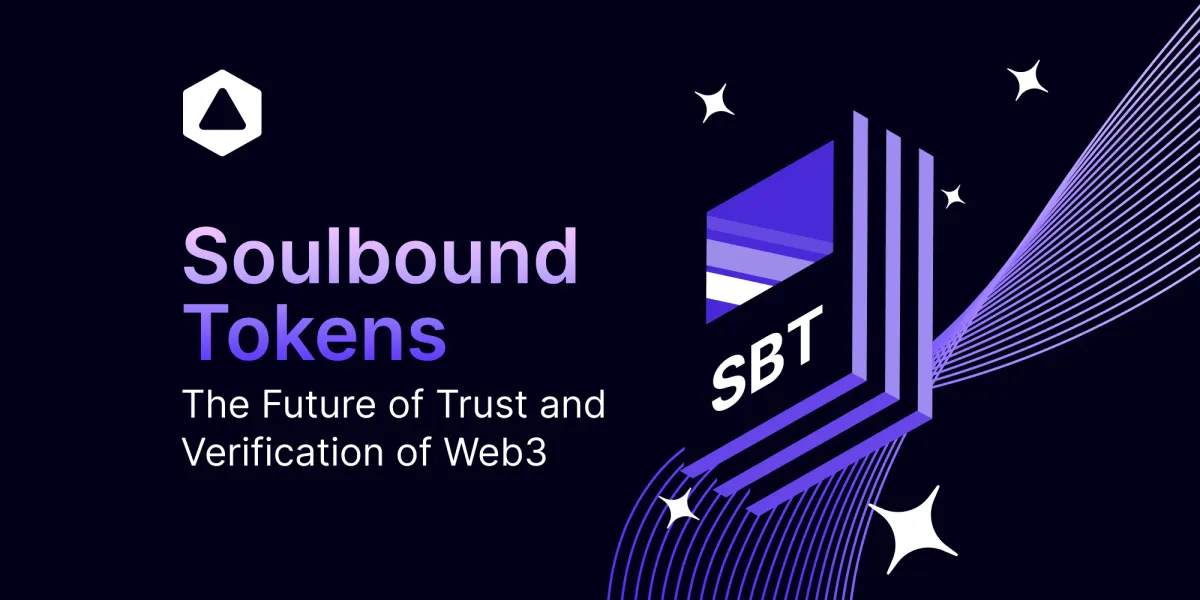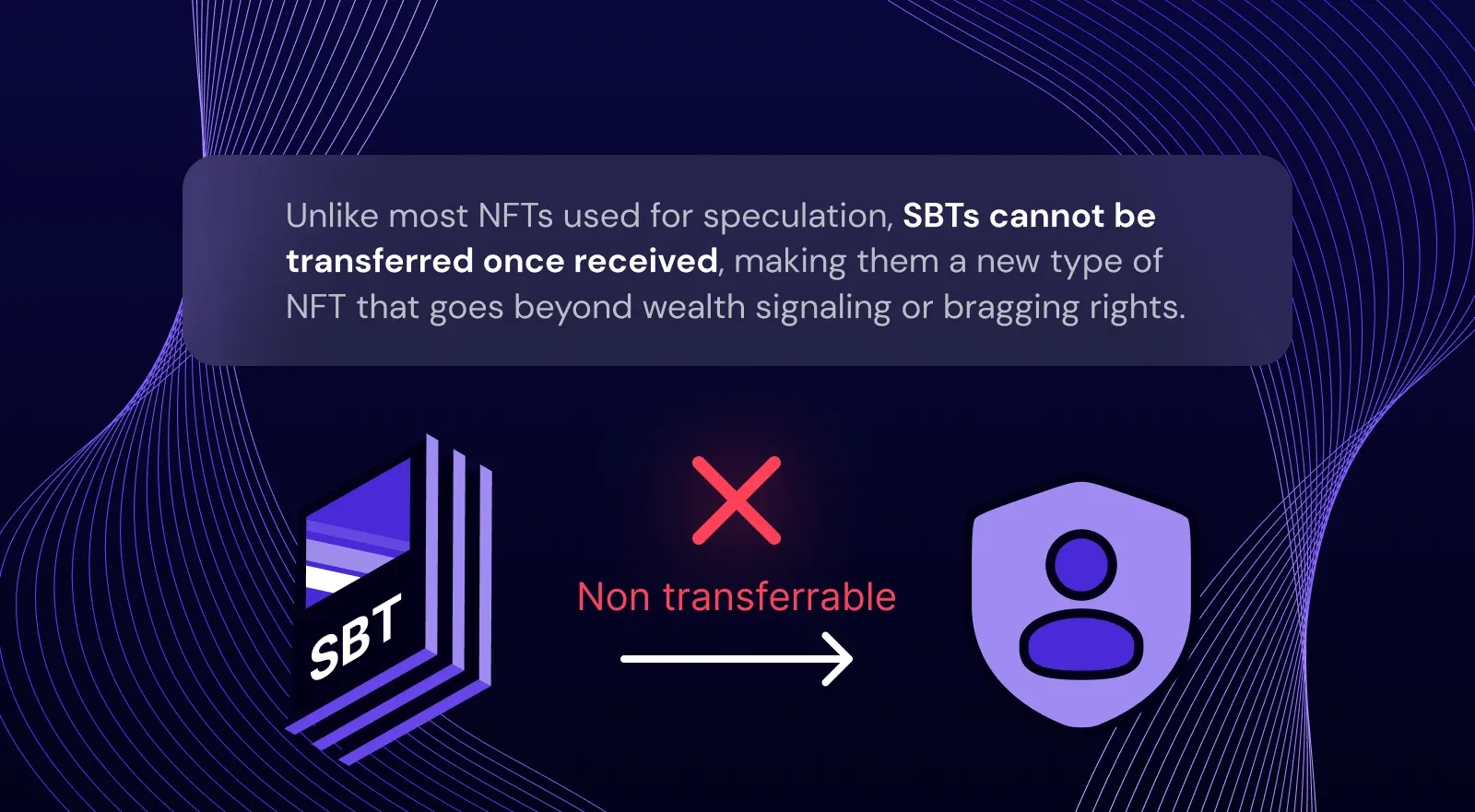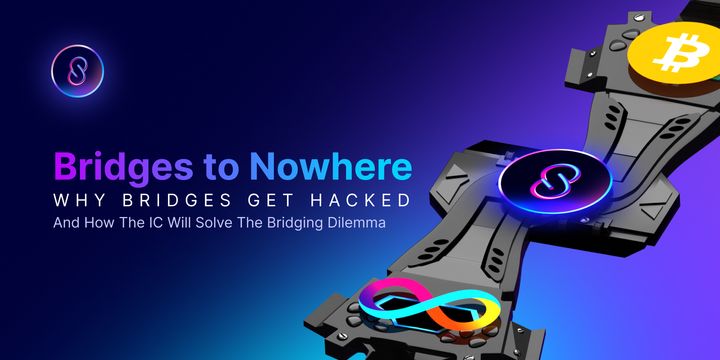Soulbound Tokens: The Future of Trust and Verification of Web3
Soulbound tokens, proposed by Vitalik Buterin, aim to represent individuals' identities and credentials in the metaverse by using non-transferable NFTs locked to user's wallets. These tokens could enable new use cases like...

Tokens have become the building blocks of the new digital economy, with blockchain technology enabling the creation of a vast array of digital tokens - from cryptocurrencies to non-fungible tokens (NFTs). But have you ever heard of Soulbound tokens? Well they have the potential to disrupt traditional industries and revolutionize the way we interact with each other and the world around us. In this article, we'll explore the exciting future of soulbound tokens and how they are set to transform various industries, including finance, healthcare, and more.
What are Soulbound Tokens?

Soulbound tokens (SBTs) are unique non-transferable NFTs that were proposed by Vitalik Buterin to create more meaningful interactions in the metaverse and enable uncollateralized loans in decentralized finance. They are locked to a specific wallet, known as a soul, owned by an individual or entity.
SBTs can represent various types of personal or professional information, such as academic achievements, work history, or credentials, and provide insights into the recipient's real-world accomplishments and preferences.
Unlike most NFTs used for speculation, SBTs cannot be transferred once received, making them a new type of NFT that goes beyond wealth signaling or bragging rights.
How does the Soulbound Token, Bound?
SBTs can be achieved through two methods both proposed by Vitalik Buterin: Proof of Humanity and binding to an ENS name. Proof of Humanity involves creating a profile that proves human identity, while binding to an ENS name assumes that people see their ENS name as part of their identity and would not transfer it.
Applications
SBTs can potentially represent any type of information specific to a person or entity. The Soulbound tokens (SBTs) can have various applications, such as representing medical records, academic achievements, professional licenses, and reputational ranking systems.
But also in web3 Soulbound tokens can aim to address the issue of trust and can potentially be used as reputation collateral for DeFi.
Also it can shift the focus of DAO voting from token holder-centric to human-centric models by giving more voting power to users with a strong reputation and commitment to the project.
Are there any drawbacks?
The potential drawbacks of soulbound tokens (SBTs) include concerns about privacy and the potential for dystopian scenarios. SBT-based credit systems could lead to troubling privacy issues, such as holders' entrance being denied to facilities, medical care, or travel permits, or having their voting rights revoked.
Identity theft could also be taken to a new level through SBTs, and there is a risk of wallet hacking. The loss of the private key to one's "soul" would result in the loss of all credentials. To address these concerns, a 'social recovery model' is proposed in the SBT whitepaper, where users can appoint guardians to access and change their wallet's private keys.
If SBTs are launched, they will also bring up troubling questions about how much control we have over our digital identities, especially as the metaverse becomes more prevalent in our daily lives.
Soulbound Token Timeline
Currently, there is no clear timeline for the availability of SBTs. However, some platforms have already announced their plans to implement SBTs, such as global exchange Binance, which has introduced the Binance Account Bound (BAB) token as a specific type of Soulbound Token (SBT) designed for Binance users who have completed their Know Your Customer (KYC) verification.
It may be worth considering launching SBTs on DFinity. What are the implications for the future, and what can we expect to see as more platforms and projects explore the potential of SBTs and their applications in various industries?
Impact Future of Crypto
After all we know, we can imagine that Soulbound tokens have the potential to impact the future of crypto in significant ways.
It can represent more than just wealth signaling and can be used to represent a person's identity and accomplishments. By providing verifiable digital identities across the Web3 ecosystem, SBTs could transform various industries, such as healthcare, education, and more, as it can potentially create a more equitable and trustworthy financial system by limiting future financial opportunities for borrowers who don't repay their loans and providing better credit ratings for trustworthy borrowers.
In this way it can enable uncollateralized loans in decentralized finance by representing a borrower's work history, degrees, and rental contracts, which could potentially expand access to credit for those who may not have traditional collateral.
Soulbound tokens can serve as Proof of Attendance (POAPs), which are NFTs given to event participants to confirm their presence. When others view your POAP, they can verify that you attended an event, increasing your reputation. While some POAPs are tradable on the secondary market, making the attendance protocol soulbound would enhance its functionality completely.
Dfinity EVM
Soulbound tokens have the potential to benefit EVM-compatible chains by enabling identity verification, reputation systems, proof of attendance, personal data management, and collateral for uncollateralized loans. They provide a new level of trust and security while also creating opportunities for community engagement.
Do you have any ideas for additional use cases of Soulbound tokens in EVM-compatible chains? Let us know in the comments!
Conclusion
Soulbound tokens have enormous potential to drive the adoption of Web3 technologies by enabling new use cases beyond simple financial speculation. By representing verifiable digital identities and credentials, SBTs could transform the way we interact and transact in the metaverse, shaping the future of decentralized finance, governance, and other areas. This potential is not limited to the Ethereum Mainnet but could also extend to all EVM-compatible chains.
To fully realize this potential while mitigating risks, equitable, secure, and privacy-respecting solutions must be implemented. With thoughtful development and oversight, SBTs could help usher in a new era of digital trust and efficiency, building a fairer and more sustainable Web3 ecosystem.

Connect with Bitfinity Network
Bitfinity Wallet | Bitfinity Network | Twitter | Telegram | Discord | Github

*Disclaimer: While every effort is made on this website to provide accurate information, any opinions expressed or information disseminated do not necessarily reflect the views of Bitfinity itself.





Comments ()